A Staple In Every Kitchen Introduction: Tomato sauce is a popular condiment that is widely used in various cuisines around the world. It is made from tomatoes that are cooked down and processed into a smooth, flavorful sauce. Tomato sauce is incredibly versatile and can be used as a base for pasta dishes, pizza toppings, dipping sauces, and much more. One of the most common forms in which tomato sauce is sold is in a can. In this article, we will explore the tomato sauce can – its history, manufacturing process, and its importance in the culinary world. History of Tomato Sauce: Tomatoes are native to South and Central America and were first cultivated by the indigenous peoples of Mexico. However, it wasn’t until the 16th century that tomatoes were introduced to Europe. Initially, they were considered poisonous due to their resemblance to the deadly nightshade plant. It was only in the 18th century that tomatoes gained popularity in Europe with the discovery that they were safe to consume. The first recorded recipe for tomato sauce dates back to the late 18th century in Naples, Italy. However, the sauce was initially made using fresh tomatoes and was not preserved or canned. It was only in the mid-19th century that tomato sauce began to be produced and sold in cans, revolutionizing the way it was consumed and stored. Manufacturing Process: The process of manufacturing tomato sauce cans involves several stages, including sourcing, preparation, cooking, packaging, and quality control. Let’s delve into each step: 1. Sourcing: Tomatoes used for sauce cans are typically grown in large-scale farms dedicated to tomato production. Farmers select specific varieties with optimal flavor and texture for sauce production. 2. Preparation: Once harvested, the tomatoes undergo a series of preparation steps, including washing, sorting, trimming, and removal of any damaged or blemished fruits. The tomatoes are then crushed or diced to prepare them for cooking. 3. Cooking: The prepared tomatoes are cooked down in large vats to concentrate the flavors. Additional ingredients such as onions, garlic, herbs, and spices are often added to enhance the taste. The cooking process involves simmering the mixture for several hours to achieve the desired consistency. 4. Packaging: After cooking, the tomato sauce is poured into cans. The cans are usually made of tin-plated steel, which is the most common material for food canning due to its durability and resistance to corrosion. The cans are then sealed to ensure proper preservation. 5. Quality Control: Before the tomato sauce cans are distributed, they undergo rigorous quality control measures. This includes testing for pH levels, flavor consistency, and nutritional content. Any cans that do not meet the specified requirements are discarded. Importance in the Culinary World: The tomato sauce can holds significant importance in the culinary world and has become a staple in households worldwide. Here are some reasons why: 1. Convenience: Tomato sauce cans provide a convenient and long-lasting option for storing and preserving tomato sauce. They have a relatively long shelf life, allowing consumers to have tomato sauce readily available whenever needed. 2. Versatility: Tomato sauce can be used in countless recipes, making it an essential ingredient in many cuisines. From classic spaghetti Bolognese to flavorful curry sauces, tomato sauce adds depth, richness, and acidity to various dishes. 3. Time-saving: Preparing tomato sauce from scratch can be a time-consuming process. Canned tomato sauce saves time in the kitchen, as it eliminates the need for peeling and processing fresh tomatoes, reducing prep time and effort. 4. Consistency: Canned tomato sauce ensures consistent quality and flavor. Manufacturers carefully control the ingredients and cooking process, leading to a uniform product that consumers can rely on for consistent taste and texture. 5. Extended Use: Tomato sauce cans are often available in various sizes, allowing users to have the right amount for their specific needs. Smaller cans are ideal for individuals or small households, while larger cans are suitable for restaurants or bulk cooking.
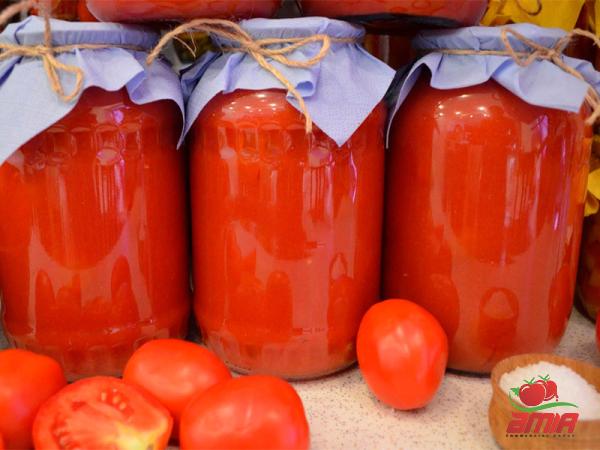
tomato paste
 Conclusion: The tomato sauce can has revolutionized the way we consume and preserve tomato sauce. From its humble beginnings, tomato sauce has become a global culinary sensation, adding flavor, convenience, and versatility to countless dishes. The canning process ensures the longevity of tomato sauce while maintaining its quality and taste. Whether used as a base for pasta sauces, pizza toppings, or as a dipping sauce, the tomato sauce can continues to be an essential pantry item in kitchens around the world.I. Market Overview: The market for tomato sauce cans is driven by the widespread popularity and usage of tomato sauce in the culinary world. Tomato sauce is a versatile condiment that is not only used in traditional Italian dishes but also finds application in various cuisines worldwide. The global tomato sauce market has experienced steady growth over the years, with an increasing demand for convenience foods and a growing preference for homemade-style sauces. II. Key Players in the Tomato Sauce Can Industry: The tomato sauce can market is highly competitive, with several key players striving to capture market share. Some of the prominent companies operating in this industry include: 1. Campbell Soup Company 2. The Kraft Heinz Company 3. Conagra Brands, Inc. 4. Hunts 5. Del Monte Foods, Inc. 6. Barilla Group 7. Cirio S.p.A. 8. Newman’s Own, Inc. 9. Mutti S.p.A. These companies not only produce tomato sauce but also offer a wide range of tomato-based products, including canned tomato paste, crushed tomatoes, and whole peeled tomatoes.
Conclusion: The tomato sauce can has revolutionized the way we consume and preserve tomato sauce. From its humble beginnings, tomato sauce has become a global culinary sensation, adding flavor, convenience, and versatility to countless dishes. The canning process ensures the longevity of tomato sauce while maintaining its quality and taste. Whether used as a base for pasta sauces, pizza toppings, or as a dipping sauce, the tomato sauce can continues to be an essential pantry item in kitchens around the world.I. Market Overview: The market for tomato sauce cans is driven by the widespread popularity and usage of tomato sauce in the culinary world. Tomato sauce is a versatile condiment that is not only used in traditional Italian dishes but also finds application in various cuisines worldwide. The global tomato sauce market has experienced steady growth over the years, with an increasing demand for convenience foods and a growing preference for homemade-style sauces. II. Key Players in the Tomato Sauce Can Industry: The tomato sauce can market is highly competitive, with several key players striving to capture market share. Some of the prominent companies operating in this industry include: 1. Campbell Soup Company 2. The Kraft Heinz Company 3. Conagra Brands, Inc. 4. Hunts 5. Del Monte Foods, Inc. 6. Barilla Group 7. Cirio S.p.A. 8. Newman’s Own, Inc. 9. Mutti S.p.A. These companies not only produce tomato sauce but also offer a wide range of tomato-based products, including canned tomato paste, crushed tomatoes, and whole peeled tomatoes.
Specifications of tomato paste
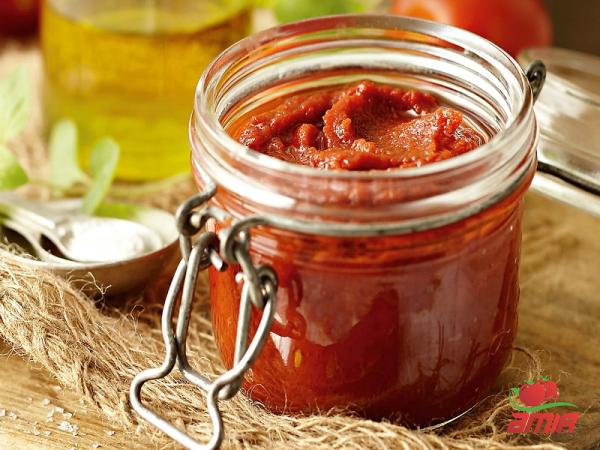 III. Market Segmentation and Product Variations: The tomato sauce can market can be segmented based on various factors, including packaging size, flavor variations, and organic offerings. Some common product variations include: 1. Regular Tomato Sauce: This is the classic tomato sauce that serves as a base for many dishes. It typically contains tomatoes, herbs, spices, and may include additional ingredients such as onions and garlic. 2. Organic Tomato Sauce: With the increasing demand for organic and natural products, many companies now offer organic tomato sauce cans. These products are made from organically grown tomatoes, free from synthetic pesticides or chemical fertilizers. 3. Flavored Tomato Sauce: To cater to different tastes, some manufacturers offer tomato sauce cans with added flavors. These variations may include ingredients like basil, oregano, chili, or roasted garlic, adding an extra kick to the sauce. 4. Chunky Tomato Sauce: Unlike the smooth texture of traditional tomato sauce, chunky tomato sauce contains pieces of tomatoes, onions, and other ingredients for a heartier consistency. 5. Tomato Sauce with Vegetables: To enhance the nutritional profile and add variety, some companies produce tomato sauce cans that include diced vegetables such as bell peppers, carrots, and mushrooms. IV. Distribution Channels: Tomato sauce cans are distributed through various channels, including supermarkets, hypermarkets, convenience stores, online platforms, and foodservice outlets. Supermarkets and hypermarkets continue to be the primary distribution channels for tomato sauce cans, offering a wide range of brands and variants to cater to consumer preferences. Online platforms have also gained popularity, as consumers can conveniently browse and purchase tomato sauce cans from the comfort of their homes. Foodservice outlets such as restaurants, cafeterias, and hotels also play a crucial role in driving sales, especially for bulk-sized cans used in commercial kitchens. V. Packaging Innovations: Packaging plays a significant role in the tomato sauce can industry, ensuring the integrity, freshness, and convenience of the product. To meet the evolving consumer demands and increase product visibility, manufacturers are continuously seeking packaging innovations. Some notable packaging trends in the tomato sauce can industry include: 1. Easy-to-Open Cans: Many manufacturers are incorporating easy-to-open lids or pull tabs on their tomato sauce cans to enhance convenience for consumers. 2. Portion-Control Packaging: To cater to the needs of individuals or smaller households, some brands offer single-serve tomato sauce cans, providing the perfect portion size and reducing waste. 3. Sustainable Packaging: With the growing focus on environmental sustainability, companies are exploring eco-friendly packaging options, such as using recyclable materials and reducing the overall carbon footprint of the packaging process. VI. Global Market Trends and Challenges: 1. Health and Wellness: Consumers are becoming increasingly health-conscious and are demanding tomato sauce cans with reduced sugar, sodium, and additives. This has led to the development of low-sodium, organic, and clean-label tomato sauce options in the market. 2. Ethnic Cuisine Influence: With the rising popularity of international cuisines, there is a growing demand for tomato sauce cans with authentic flavors suitable for specific cuisines like Indian, Mexican, or Thai. 3. Rise of Private Label Brands: Private label brands are gaining traction, offering affordable tomato sauce cans without compromising on quality. Retailers are increasingly investing in their own private label products, providing consumers with more options and pricing flexibility. 4. Global Expansion: Key players in the tomato sauce can industry are exploring new markets and expanding their distribution networks globally. Emerging economies, such as China, India, and Brazil, offer significant growth opportunities due to the increasing adoption of western food habits and rising disposable incomes.
III. Market Segmentation and Product Variations: The tomato sauce can market can be segmented based on various factors, including packaging size, flavor variations, and organic offerings. Some common product variations include: 1. Regular Tomato Sauce: This is the classic tomato sauce that serves as a base for many dishes. It typically contains tomatoes, herbs, spices, and may include additional ingredients such as onions and garlic. 2. Organic Tomato Sauce: With the increasing demand for organic and natural products, many companies now offer organic tomato sauce cans. These products are made from organically grown tomatoes, free from synthetic pesticides or chemical fertilizers. 3. Flavored Tomato Sauce: To cater to different tastes, some manufacturers offer tomato sauce cans with added flavors. These variations may include ingredients like basil, oregano, chili, or roasted garlic, adding an extra kick to the sauce. 4. Chunky Tomato Sauce: Unlike the smooth texture of traditional tomato sauce, chunky tomato sauce contains pieces of tomatoes, onions, and other ingredients for a heartier consistency. 5. Tomato Sauce with Vegetables: To enhance the nutritional profile and add variety, some companies produce tomato sauce cans that include diced vegetables such as bell peppers, carrots, and mushrooms. IV. Distribution Channels: Tomato sauce cans are distributed through various channels, including supermarkets, hypermarkets, convenience stores, online platforms, and foodservice outlets. Supermarkets and hypermarkets continue to be the primary distribution channels for tomato sauce cans, offering a wide range of brands and variants to cater to consumer preferences. Online platforms have also gained popularity, as consumers can conveniently browse and purchase tomato sauce cans from the comfort of their homes. Foodservice outlets such as restaurants, cafeterias, and hotels also play a crucial role in driving sales, especially for bulk-sized cans used in commercial kitchens. V. Packaging Innovations: Packaging plays a significant role in the tomato sauce can industry, ensuring the integrity, freshness, and convenience of the product. To meet the evolving consumer demands and increase product visibility, manufacturers are continuously seeking packaging innovations. Some notable packaging trends in the tomato sauce can industry include: 1. Easy-to-Open Cans: Many manufacturers are incorporating easy-to-open lids or pull tabs on their tomato sauce cans to enhance convenience for consumers. 2. Portion-Control Packaging: To cater to the needs of individuals or smaller households, some brands offer single-serve tomato sauce cans, providing the perfect portion size and reducing waste. 3. Sustainable Packaging: With the growing focus on environmental sustainability, companies are exploring eco-friendly packaging options, such as using recyclable materials and reducing the overall carbon footprint of the packaging process. VI. Global Market Trends and Challenges: 1. Health and Wellness: Consumers are becoming increasingly health-conscious and are demanding tomato sauce cans with reduced sugar, sodium, and additives. This has led to the development of low-sodium, organic, and clean-label tomato sauce options in the market. 2. Ethnic Cuisine Influence: With the rising popularity of international cuisines, there is a growing demand for tomato sauce cans with authentic flavors suitable for specific cuisines like Indian, Mexican, or Thai. 3. Rise of Private Label Brands: Private label brands are gaining traction, offering affordable tomato sauce cans without compromising on quality. Retailers are increasingly investing in their own private label products, providing consumers with more options and pricing flexibility. 4. Global Expansion: Key players in the tomato sauce can industry are exploring new markets and expanding their distribution networks globally. Emerging economies, such as China, India, and Brazil, offer significant growth opportunities due to the increasing adoption of western food habits and rising disposable incomes.
buy tomato paste
 VII. Marketing and Advertising Strategies: To create brand awareness and promote tomato sauce cans, companies undertake various marketing and advertising strategies. Some common approaches include: 1. Television and Print Advertising: Companies invest in television commercials and print ads in culinary and lifestyle magazines to reach a wide consumer base. 2. Social Media Promotion: Leveraging social media platforms allows companies to engage with consumers directly, share recipes, and create brand loyalty through interactive content and advertisements. 3. Influencer Partnerships: Collaborating with food influencers, chefs, and cooking enthusiasts helps create buzz and credibility around the brand, encouraging consumers to try and recommend their products. 4. Product Placement and Sponsorships: Brands often sponsor cooking shows, culinary events, or relevant food-centric television programs to showcase their tomato sauce cans and establish brand visibility. VIII. Future Outlook: The tomato sauce can industry is expected to grow steadily in the coming years due to the increasing popularity of convenience foods, the growing demand for authentic flavors, and the expansion of distribution networks. Consumer preferences for healthier, organic, and sustainable options will continue to drive innovation in product formulations and packaging. Furthermore, technological advancements in food processing and preservation techniques, such as aseptic packaging or pouches, may present new opportunities for the tomato sauce can industry. As consumer tastes continue to evolve, companies will strive to cater to their preferences by offering a diverse range of flavors, organic options, and packaging innovations. Conclusion: The tomato sauce can industry is an integral part of the culinary world, providing consumers with a convenient and versatile condiment. With a wide range of product variations, packaging innovations, and an increasing focus on health and wellness, the industry is poised for continued growth. As companies adapt to changing consumer preferences and explore new markets, the tomato sauce can will maintain its position as a kitchen staple, loved by home cooks and professional chefs alike.
VII. Marketing and Advertising Strategies: To create brand awareness and promote tomato sauce cans, companies undertake various marketing and advertising strategies. Some common approaches include: 1. Television and Print Advertising: Companies invest in television commercials and print ads in culinary and lifestyle magazines to reach a wide consumer base. 2. Social Media Promotion: Leveraging social media platforms allows companies to engage with consumers directly, share recipes, and create brand loyalty through interactive content and advertisements. 3. Influencer Partnerships: Collaborating with food influencers, chefs, and cooking enthusiasts helps create buzz and credibility around the brand, encouraging consumers to try and recommend their products. 4. Product Placement and Sponsorships: Brands often sponsor cooking shows, culinary events, or relevant food-centric television programs to showcase their tomato sauce cans and establish brand visibility. VIII. Future Outlook: The tomato sauce can industry is expected to grow steadily in the coming years due to the increasing popularity of convenience foods, the growing demand for authentic flavors, and the expansion of distribution networks. Consumer preferences for healthier, organic, and sustainable options will continue to drive innovation in product formulations and packaging. Furthermore, technological advancements in food processing and preservation techniques, such as aseptic packaging or pouches, may present new opportunities for the tomato sauce can industry. As consumer tastes continue to evolve, companies will strive to cater to their preferences by offering a diverse range of flavors, organic options, and packaging innovations. Conclusion: The tomato sauce can industry is an integral part of the culinary world, providing consumers with a convenient and versatile condiment. With a wide range of product variations, packaging innovations, and an increasing focus on health and wellness, the industry is poised for continued growth. As companies adapt to changing consumer preferences and explore new markets, the tomato sauce can will maintain its position as a kitchen staple, loved by home cooks and professional chefs alike.
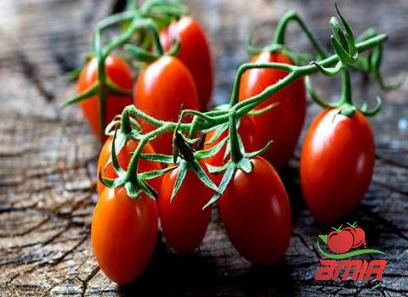
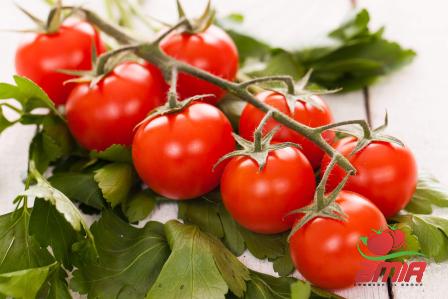

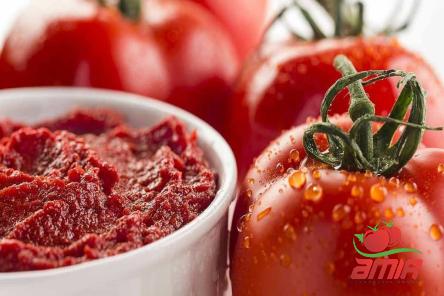


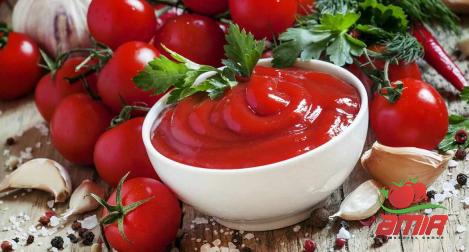
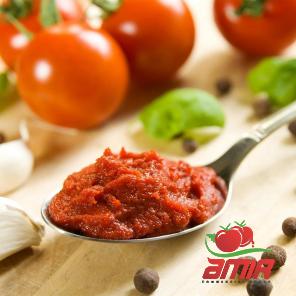
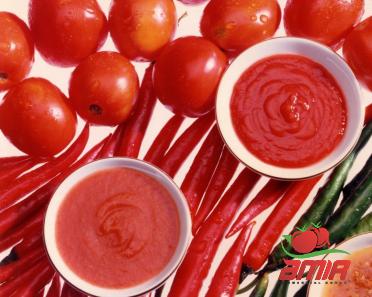
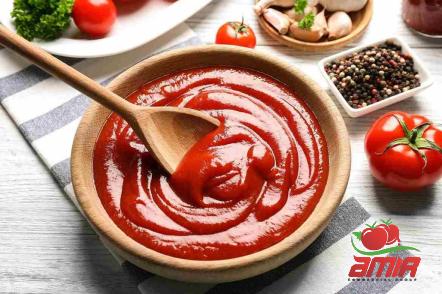
Your comment submitted.